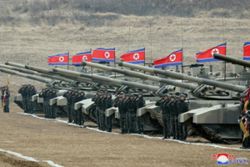
Tan Sri Lee Lam Thye is a distinguished social activist renowned for a lifetime of service to Malaysia and its people. Lee currently chairs the Alliance for a Safe Community and the Eco World Foundation. He has also served as NIOSH chairman for nearly 30 years and was the Malaysia Crime Prevention Foundation senior vice chairman.
As we navigate the evolving landscape of corporate governance, the social aspect of Environmental, Social, and Governance (ESG) practices has gained paramount importance.
Throughout my journey as a social activist and former National Institute of Occupational Safety and Health Malaysia (NIOSH) chairman, I have been driven by a profound commitment to occupational safety and health, crime prevention and community wellbeing.
This commitment has guided me in engaging with initiatives that have made tangible differences in the lives of Malaysians, highlighting the critical role that civic leaders play in fostering social responsibility.
My passion to drive social causes was ignited early in my career. Witnessing the myriad challenges faced by communities, particularly in terms of safety and health, inspired me to take action.
The motivation behind my decades-long commitment stems from a deep-seated belief that every individual deserves a safe and healthy environment. This conviction has been the cornerstone of my efforts to promote safety, reduce crime, and enhance community wellbeing.
Leaving footprints for the next generation
Social responsibility, like education, should be inculcated at a young age. Parents can begin fostering a sense of social responsibility among their children by teaching them kindness and selflessness at home. That was how my parents motivated my young self to always be unassuming and caring to all human beings. Their teachings will be ingrained in me for as long as I live and I hope what I preach and practice through the many initiatives conducted with multiple organisations will be emulated by civic leaders, as well as the general public, who play a role in society as stewards of nature and humanity.
Occupational safety and health
During my tenure as NIOSH chairman, I played a pivotal role in advocating for occupational safety and health. We collaborated with numerous businesses to integrate occupational safety into their corporate social responsibility (CSR) strategies. By highlighting the economic and ethical benefits of a safe working environment, we encourage businesses to invest in the wellbeing of their employees, thereby contributing to broader societal health.
Public safety and crime prevention
My work on public safety and crime prevention with Malaysia Crime Prevention Foundation (MCPF) involved initiating and supporting various crime prevention programmes. We focused on community policing, youth engagement, and public awareness campaigns to reduce crime and enhance public safety.
Community wellbeingAs the Alliance for a Safe Community (Ikatan Komuniti Selamat) chairman, I have been involved in numerous initiatives aimed at enhancing occupational safety and health (OSH), road safety and community safety. Our focus has been on creating safer environments through community-driven efforts and collaborative strategies.
By fostering partnerships between the government, private sector, and local communities, we have been able to implement effective crime prevention programmes and public safety campaigns. This role has allowed me to leverage my experience and network to advocate for policies and practices that prioritise the safety and wellbeing of all Malaysians.
Advocating for national unity
National unity is of paramount importance to me. As a strong advocate for national unity, I work tirelessly to promote racial unity among Malaysians. I believe that being a Malaysian does not mean one must be less Malay, Chinese, Indian, Eurasian, Iban, Dayak, etc.
Malaysia’s invaluable asset is its diversity, and we should accept each other as fellow Malaysians. Such bonds cultivate patriotism, advance harmony, and reduce racial polarisation. I am all for declaring Malaysia Day as Unity Day to reflect the aspirations of all Malaysians and provide a platform to unite our diverse races.
Influencing civic leaders
Civic leaders possess a unique perspective and influence that are invaluable in addressing social challenges. Our positions often allow us to bridge the gap between the government, private sector, and local communities. This intermediary role enables us to advocate for policies that promote social responsibility and inspire businesses to incorporate social considerations into their operations. For instance, during my tenure at NIOSH, we collaborated with numerous businesses to integrate occupational safety into their CSR strategies. By highlighting the economic and ethical benefits of a safe working environment, we encouraged businesses to invest in the wellbeing of their employees, thereby contributing to broader societal health.
Strategies for effective collaboration
Effective collaboration between civic leaders, the government, private sector, and communities is essential to amplify the impact of social responsibility efforts. One strategy is to establish multi-stakeholder forums where representatives from all sectors can share insights, identify common goals, and develop cohesive action plans.
These forums foster open communication, build trust, and ensure that initiatives are inclusive and comprehensive. Civic leaders can harness their understanding of community needs, the government can provide regulatory support, businesses can contribute resources and expertise, and communities can offer grassroots-level insights. By aligning these strengths, collaborative efforts can achieve sustainable and impactful outcomes.
Fostering a culture of volunteerism and engagement
Fostering a culture of volunteerism, social activism and community engagement is crucial in complementing the efforts of the government and businesses.
Encouraging individuals to volunteer not only addresses immediate community needs but also cultivates a sense of social responsibility. Volunteerism empowers individuals to contribute to societal wellbeing, fostering a collective effort towards sustainable development. Educational programmes that promote social activism among youth can also play a significant role.
By instilling values of empathy, leadership and civic duty, we can nurture a generation that is committed to driving positive change. Civic leaders can spearhead these programmes, partnering with schools, universities and non-profit organisations to reach a wider audience.
Vision for the future
Looking ahead, my vision for Malaysia is one where civic leaders work alongside policymakers and businesses to create a more equitable, inclusive, and socially responsible society. This vision entails a collaborative approach where each stakeholder recognises their role and contributes meaningfully to social progress.
By integrating social responsibility into the core operations of businesses and aligning it with governmental policies, we can address pressing social issues more effectively. Together, we can build a future where every individual thrives in a safe, healthy and inclusive society.
The views expressed here are the writer’s own.



































